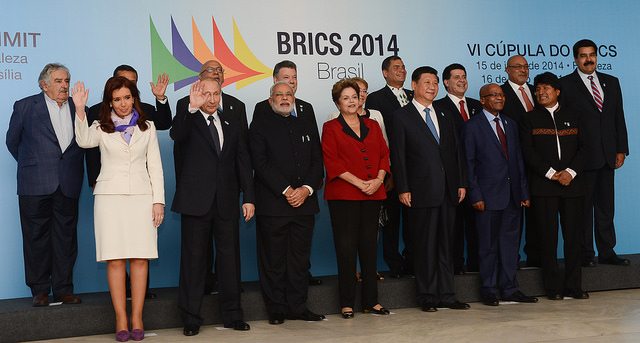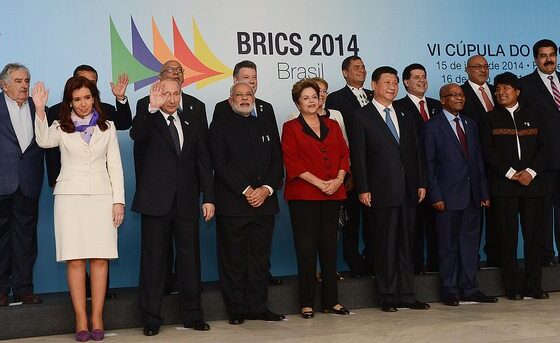

Economy
BRICS: $100bn sustainable development bank launched by world’s largest developing economies
The BRICS group, made up of Brazil, Russia, India, China and South Africa, have established their own international bank, to promote sustainable investment and to act as an emergency reserve.
The bank will be based in Shanghai and its first president will be from India, the group announced. In a declaration, the nations said, “BRICS continue to face significant financing constraints to address infrastructure gaps and sustainable development needs.
“With this in mind, we are pleased to announce the signing of the agreement establishing the NDB, with the purpose of mobilising resources for infrastructure and sustainable development projects in BRICS and other emerging and developing economies.”
The group has also highlighted the primary pursuit of renewable energies and cleantech, in a bid to curb reliance on fossil fuels while also tackling climate change – which primarily affects developing countries, like those in BRICS.
The declaration continues, “While bearing in mind that fossil fuel remains one of the major sources of energy, we reiterate our belief that renewable and clean energy, research and development of new technologies and energy efficiency, can constitute an important driver to promote sustainable development, create new economic growth, reduce energy costs and increase the efficiency in the use of natural resources.”
The capital that is made by the bank will be split evenly between all BRICS members, as it acts as a “kind of security” for the nations, said Dilma Rousseff, president of Brazil.
The bank will also be taking advantage of the booming green bonds market, where Germany has just committed a further €750 million (£594m) to the fund, in an attempt to encourage its industrial neighbours.
The newly elected prime minister of India, Narendra Modi, expressed concern at a BRICS conference in Fortaleza, Brazil, saying, “Developments in Iraq and the wider region could affect this. I am also concerned that tight monetary policies in some countries could undercut investment and growth in ours.”
Modi has already pledged in his election manifesto to heavily invest in solar electricity, with the aim of powering every home in India by 2019. Currently, 4 million Indians live without electricity.
Photo: Ministério das Relações Exteriores via Flickr
Further Reading:
BRICS: renewable energy and sustainability in emerging economies
MINT economies must learn from the west’s unsustainable past
China: developed nations should take the lead on climate change
India’s new prime minister says every home will have solar power by 2019
Brazilian soy production still unsustainable according to campaigners


 Environment12 months ago
Environment12 months agoAre Polymer Banknotes: an Eco-Friendly Trend or a Groundswell?

 Features11 months ago
Features11 months agoEco-Friendly Cryptocurrencies: Sustainable Investment Choices

 Features12 months ago
Features12 months agoEco-Friendly Crypto Traders Must Find the Right Exchange

 Energy11 months ago
Energy11 months agoThe Growing Role of Solar Panels in Ireland’s Energy Future




























